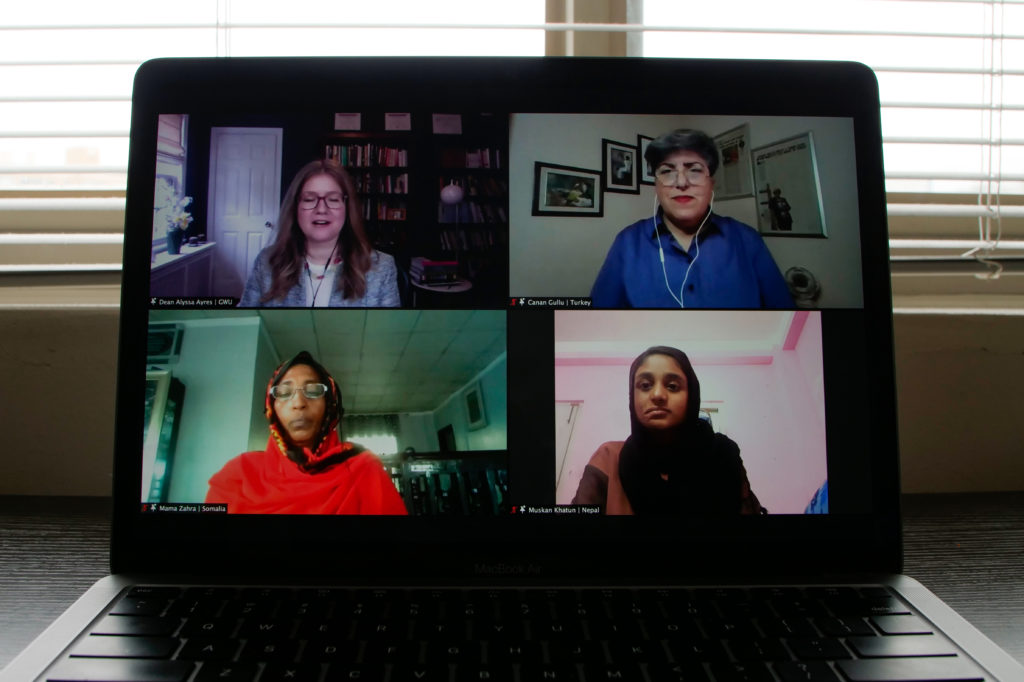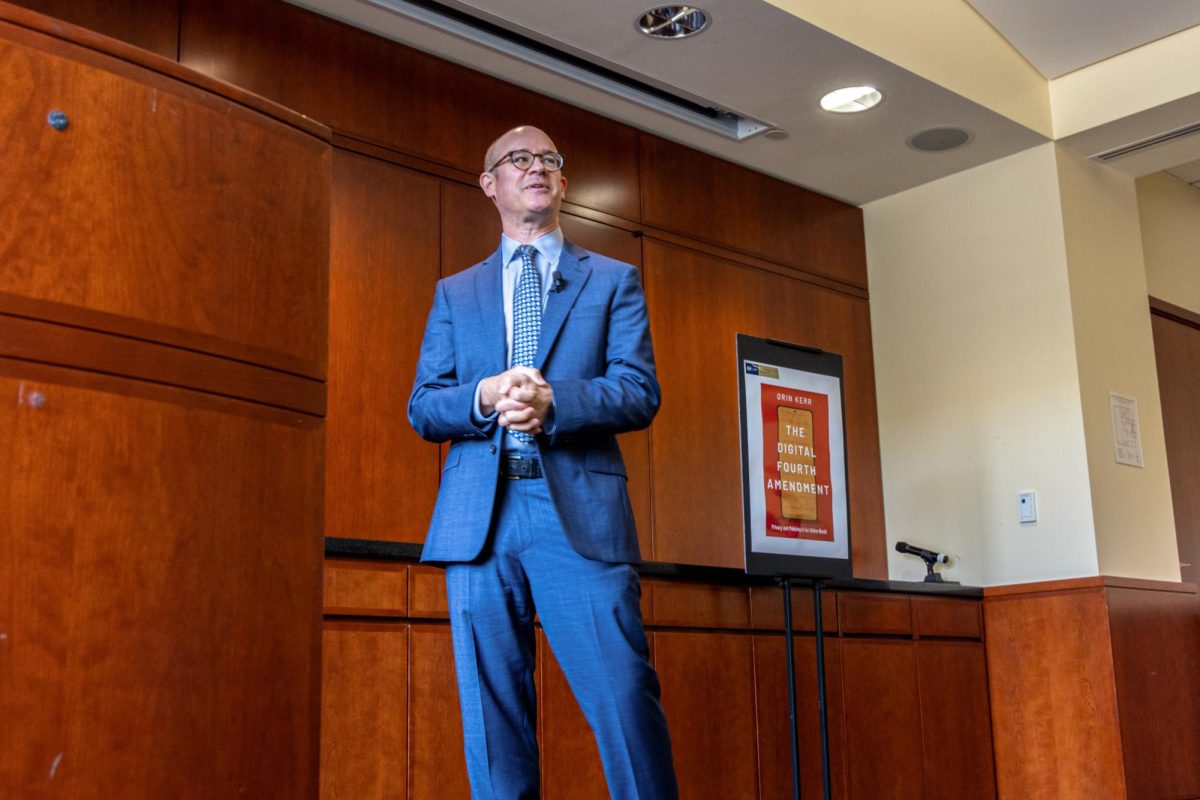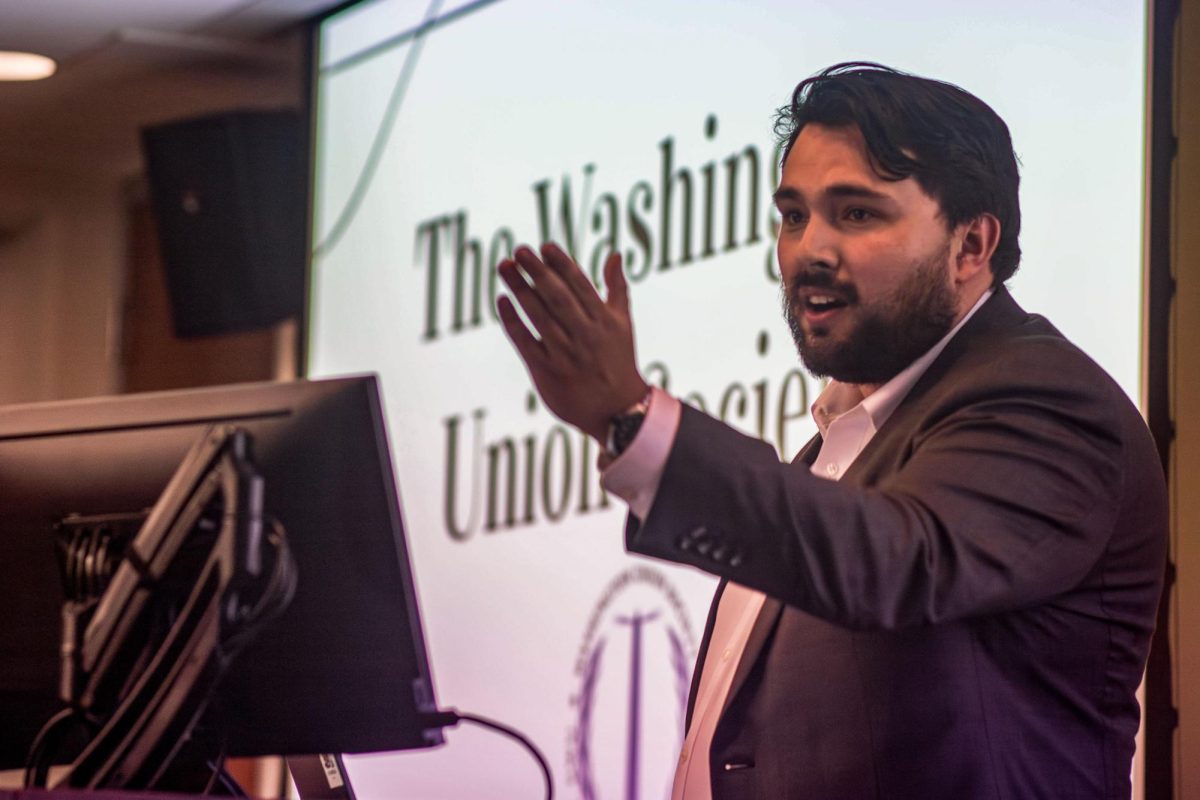A panel of accredited international women’s rights activists led a discussion about their work advocating for social and political reform Wednesday.
The Elliott School of International Affairs hosted an event featuring three recipients of the Secretary of State’s 2021 International Women of Courage award, who discussed their inspiration and work in women’s rights advocacy. Elliott School Dean Alyssa Ayres moderated the event, in collaboration with the U.S. State Department.
The Secretary of State’s award honors female activists who’ve advanced peace, justice, human rights and gender equality in their home countries, according to the State Department website.
Zahra Mohamed Ahmad, the founder of the Somali Women Development Center, said international women activists need more unity to promote “accountability” for protecting women’s rights.
“Gender violence has no color, no country and no boundaries,” Ahmad said. “It is known everywhere. I have been to the U.S., and I have seen firsthand this is not a problem particular to the third world or to poor countries.”
Ahmad said women’s rights laws need to be enforced on both a national and international scale. She said encountering challenges when trying to enact women’s rights reforms in Somalia is “normal,” especially when trying to change cultural attitudes.
“The younger generations are working really hard to bring about cultural change,” she said. “Yes we have obstacles, and those obstacles don’t discourage us but encourage us to do better.”
Canan Gullu, the president of the Turkish Federation of Women’s Associations, said her organization is working to defend women’s rights in Turkey. She said the group is lobbying against Turkish President Recep Tayyip Erdoğan’s decision to unilaterally withdraw the country from the Istanbul Convention – an international agreement that seeks to prevent violence against women.
“Our leader, with one signature, decided to repeal this convention even though our internal legal system does not allow for one man to exert this kind of executive power,” she said. “Fighting wins so we will try to express our voice and argue in court against this action.”
Gallu said she trusts local Turkish women’s rights organizations and other civil society groups to effectively lobby the government to rejoin the convention.
“Our struggle is never for a day or two,” she said. “It is a struggle for equality. Women’s organizations are fighting for a secular modern Turkey and will continue to do so until violence against women stops.”
Muskan Khatun, a Nepalese activist who has helped bring about legislation criminalizing acid attacks, said she was inspired to advocate for legal reform in Nepal while she remained hospitalized for injuries from an attack.
She said media attention and local support for her case gave her the confidence to speak out.
“I realized we needed to have legal protections so that nobody suffers the way that I did,” Khatun said. “I tolerated so much.”
Khatun said she hopes her personal endeavors can help prevent other women from sharing any similar experiences.
“I am a 15-year-old girl,” she said. “If I am not safe, then all the women in my country are not safe.”








